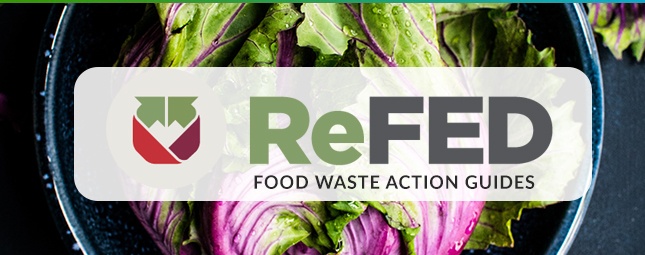Importance of Food Waste For Prevention & Value Of Waste Tracking

ReFED, the U.S.-based nonprofit working to reduce the nation’s food waste, just released two new Food Waste Action Guides to help restaurants and foodservice providers develop waste reduction plans.
LeanPath is proud to have collaborated with ReFED in developing the guides. A number of LeanPath’s largest clients also collaborated on the effort, including Aramark, Sodexo, and Delaware North.
The Foodservice and Restaurant Food Waste Action Guides provide best practices and strategies as well as present a set of proven prevention, recovery, and recycling solutions to help the industry prioritize and accelerate waste reduction activities.
The foodservice industry, as defined by the guide, consists of businesses that provide food for client organizations, including those in healthcare, corporate, and educational settings.
Key Foodservice Food Waste Action Guide findings include:
- Prevention solutions are the most cost-effective and could reduce annual food waste by 600,000 tons.
- Implementing Waste Tracking & Analytics, like LeanPath, can reduce pre-consumer waste generated by contract foodservice providers by up to 50%.
- Providing guests with varying portion choices or options and Trayless Dining can reduce post-consumer waste by as much as 30%.
- The Restaurant Food Waste Action Guide provides a template for restaurants to develop and embed a food waste reduction culture throughout their operations, and extend it to the consumer.
Key Restaurant Food Waste Action Guide findings include:
- Prevention solutions are the most cost-effective and could reduce annual food waste by 400,000 tons. Prevention solutions include food waste tracking technology.
- Increasing recycling programs such as Centralized Composting and Anaerobic Digestion could divert 2.6 million tons of waste from landfills and reduce CO2 emissions by 1.9 million tons.
- Providing guests with varying portion options may reduce the amount of food diners leave uneaten, which can be as much as 17% of their meals.
“Food waste reduction is quickly becoming a key element of financial and reputational value for restaurants and foodservice providers,” explains Chris Cochran, Executive Director of ReFED.
